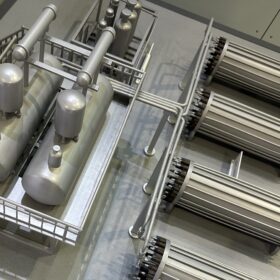Innovations in Hydrogen Technology: Rolls-Royce and Lhyfe Leading the Way in Germany and Canada
Key Ideas
- Rolls-Royce is pioneering the development of a hydrogen combustion engine for CHP systems in Germany, funded by the Phoenix project and supported by various partners, aiming for high power density and efficiency.
- Lhyfe has installed a 1 MW electrolyzer at a green hydrogen production plant in Tübingen, Germany, for Deutsche Bahn, enabling the testing of sustainable rail energy supply technologies.
- Canada has introduced Clean Economy Investment Tax Credits, including the Clean Hydrogen ITC, to incentivize investments in hydrogen production projects, with a focus on producing the cleanest hydrogen and supporting CCUS projects.
- Bergen Engines from Norway has achieved a milestone by enabling its natural gas engines to accommodate a 25% hydrogen blend without modification, contributing to greener energy solutions for land and marine applications.
Rolls-Royce has embarked on developing a cutting-edge hydrogen combustion engine for combined heat and power systems in Germany through the Phoenix project, with the goal of matching the performance of current natural gas units. The project, backed by nearly €5 million in funding from the German government, involves collaboration with esteemed partners to push the boundaries of power density and efficiency.
On the other hand, Lhyfe has made significant strides by installing a 1 MW electrolyzer at a green hydrogen production facility in Tübingen, Germany, to support Deutsche Bahn in testing new sustainable technologies for rail energy supply. This initiative aligns with the 'H2goesRail' project, aiming to introduce a climate-neutral hydrogen train in Baden-Württemberg.
In Canada, the government has introduced the Clean Economy Investment Tax Credits, including the Clean Hydrogen ITC, to stimulate investment in hydrogen production projects. Prioritizing the production of clean hydrogen, the tax credits aim to support projects that contribute to a greener economy and encourage the conversion of hydrogen into ammonia for transportation purposes.
Additionally, Bergen Engines from Norway has achieved a substantial milestone by enhancing its natural gas engines to operate with a 25% hydrogen blend without requiring modifications. This advancement signifies a significant step forward in promoting environmentally friendly energy solutions for both land and marine applications.
